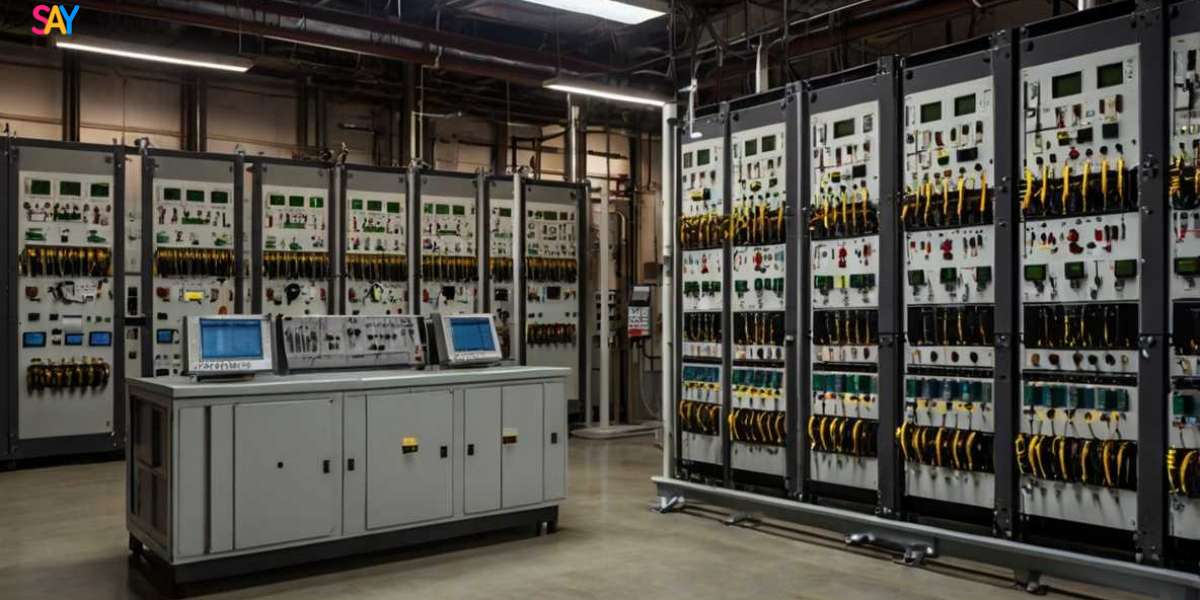Saudi Arabia is poised to take advantage of the digital economy and innovation in energy. Under Vision 2030, the Kingdom is focusing on upgrading its utilities with smart technologies, including infrastructure with modern technology systems. One of the most important technologies that will contribute to this transformation is Substation Automation which is going to help in shaping the future of power distribution and energy efficiency in the Kingdom.
The Rise of Substation Automation
Remote monitoring, controlling, and protecting electrical substations using IT technologies like Intelligent Electronic Devices (IEDs), communication networks, and data analytics fall under Substation Automation (SA). Manual operations through human intervention was the norm for substations in the past. Automation enhances these functions resulting in greater accuracy and reliability which are crucial assets for a country vying for tech and economic preeminence in the region.
Significant growth is anticipated in Saudi Arabia substation automation market in 2025 due to domestic infrastructure investments and sustainability initiatives. Saudi Arabia is one of the fastest-growing economies in the world. The nation is determined to modernize its electricity infrastructure to support increasing population and electricity demand.
Smart Grid Integration
The move towards a smart grid is one of the major drivers of market growth in Saudi Arabia. A smart grid deconstructs the traditional grid by adding digital technologies, which allows for communication between the utility and its consumers. Substation automation enhances this ecosystem with real-time data, predictive maintenance, and fault detection capabilities that optimize performance and reduce downtime.
The SEC and other utility providers are trying to procure smart substations, which is the backbone of this smart grid. These substations are expected to improve operational agility, strengthen resilience to power outages, and facilitate the incorporation of renewable energy sources, including solar and wind.
Energy Efficiency and Reliability
Focusing on energy efficiency is another important driver of the market. Automated substations allow utilities to manage load, control power delivery, and reduce losses. This is beneficial for Saudi Arabia as it looks to decrease reliance on fossil fuel and adopt environmentally friendly solutions.
There are a number of advantages to automating substations. Enhanced monitoring of power usage patterns allows the detection of faults before they escalate and stabilizes the grid. These automated systems help utilities provide uninterrupted services, resulting in reduced operational costs and increased customer satisfaction.
Digital Development and Investments
Other sectors are also experiencing a rise in the Saudi digital transformation. In the area of electric energy distribution, some changes are being driven by government policies and foreign investments. Embedded systems at substations are already being automated utilities using IoT, AI, and cloud technologies. Such transformations enable smarter and less risky operations within the utilities.
Major market players like ABB, Siemens, and Schneider Electric are actively pursuing cooperation with local electricity suppliers for the implementation of advanced regional automation systems.
Looking Ahead
The digital transformation of electricity distribution in Saudi Arabia is surely the direction of evolution. While the substation automation market will continue to grow until 2025, it is expected to enable more dependable electricity supply, advanced energy control, and assist the national renewable energy targets.
In summary, there is evolution in growth in the Saudi Arabia substation automation market. It remains a vital foundation for the country’s energy transition where a modern and efficient intelligent grid is planned to be developed for the needs of sustainable living.
Company Name: GMI RESEARCH
Email: [email protected]
Address: Dublin, Ireland
Website: https://www.gmiresearch.com/
GMI Research – Consulting Market Research




